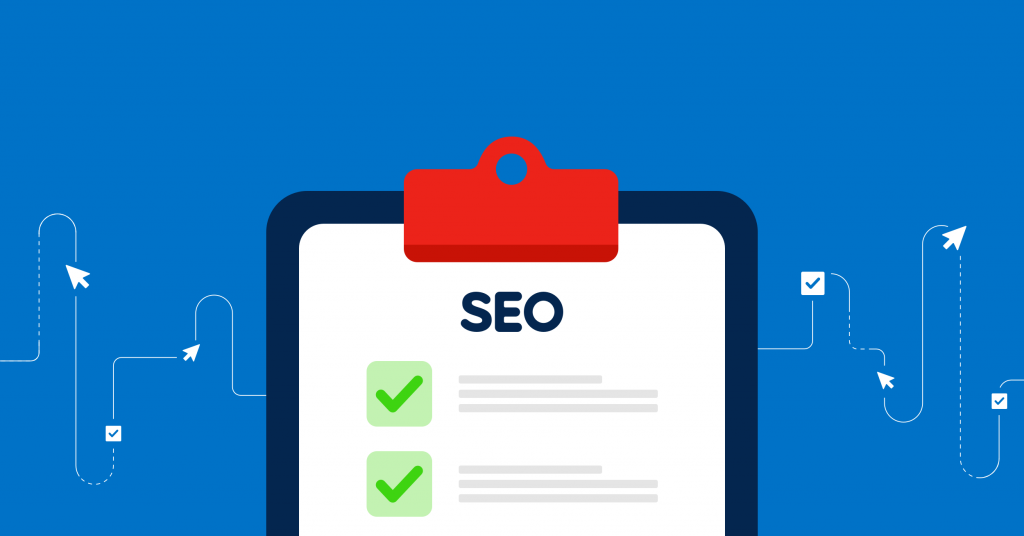
Did you know that Google ranks websites based on over 200 factors? Besides, the search engine updates its algorithms around 500 to 600 times a year.
That’s once or twice each day!
Although most of these changes are minor, Google sometimes rolls out larger updates that may affect your website’s position in the SERPs.
This makes SEO tricky. But it’s not impossible.
That’s why today, we’ve compiled a list of the top 7 SEO ranking factors you can’t go wrong with.
Top 7 SEO ranking factors 2021

1. Mobile Friendliness
Mobile devices account for almost 55% of all web traffic. What’s more, internet users check their phones around 58 times a day, on average.
Not only that, but we’ve talked to we’ve talked with a few experts from a New York software development company, and they said that the mobile SaaS market is also booming.
It’s a fact! We love our smartphones.
And Google loves them too. So much so that as of June 2021, the search engine set mobile-first indexing as the default for all websites.
In other words, if your website is not mobile-friendly, it doesn’t stand a chance of occupying the top positions within the SERP.
That said, make sure to implement a responsive design to keep the user experience consistent across all types of devices.
Or, you could work with a website design company to create a custom-tailored solution and provide mobile users with the best browsing experience possible.
Also, your fonts need to be readable on smaller screens, and your menus have to allow for easy navigation for touch screens.
2. Page Speed
Speaking of mobiles, users want to find answers as quickly as possible. Thus, page speed became one of the leading ranking factors for mobile websites.
Not to mention that 53% of mobile visitors will abandon a web page if it doesn’t load within three seconds. This can increase your website’s bounce rate and decrease dwell time, which are also ranking factors. Make sure to speed test your website and see how it stack up against the three-second mark.
If the loading time is slow, you should optimize images, enable lazy loading, reduce the number of redirects and use a content delivery network.
3. Security
Security has been classified as a ranking factor since 2014, and it still plays a crucial role in positioning your website in the SERPs. After all, Google wants to drive users to trustworthy websites.
So, you should get the SSL certificate if you haven’t already. The certificate authenticates your website’s identity and ensures a secure connection between a website and its visitors.
In other words, SSL will activate the HTTPS protocol, which encrypts the data transferred between websites and visitors so that potential hackers won’t be able to read or modify it.
Without it, your website will run on HTTP, telling Google that it’s not safe to visit. Furthermore, the “Not Secure” label will appear next to your site’s URL, which may drive visitors away.
4. Crawlability
If you want Google that rank your web pages, it needs to find them first.
For starters, you can submit a sitemap. This lists all the pages within your website and shows search engine crawlers how they link to each other.
Consequently, crawlers will have an easier time scanning your website and index pages that might not be accessible through your site’s main navigation.
Secondly, you can use your robots.txt file. This file is placed at the root of your website and tells search engine bots what pages they can or cannot crawl.
This can be handy for hiding private pages or pages that offer no value to visitors, like “Thank You” pages, for example.
5. User Engagement
In terms of rankings, user behavior is essential. Google will look at your web pages’ click-through rates, bounce rates, and dwell times to determine whether they provide relevant results to visitors.
That said, create compelling meta-titles and descriptions to convince users to enter your website. Also, try getting them to spend more time on your website by having an attractive design and quality graphics, using internal links to encourage users to navigate your website and provide valuable content.
6. Backlinks
The number and quality of links that point to your website matter. That’s how Google figures out if your website is credible and if your content is relevant. In other words, the more reputable websites link back to you, the better your web pages will look in Google’s eyes, and the higher you will rank.
In most cases, this will require a link-building strategy. Consider guest posting on authoritative sites, outreaching bloggers within your niche, and doing broken link building.
7. Keywords
Lastly, you can’t drive a lot of traffic without using the right keywords. Keywords research is essential, as it allows you to understand what topics users search for.
Consequently, you’ll know what type of content to deliver.
So how do you know what keywords to use?
For starters, focus on long-tail keywords. With the rise in voice search, queries start to look different. More specifically, they are much longer compared to spoken queries.
Secondly, keep an eye out for search volume. There’s no point in ranking for keywords that people don’t use. But, also check keyword competition. That’s because it may be hard to rank for the same keywords as some other giants within your industry.
If you do the research right, you may stumble upon high-volume keywords with barely any competition.





